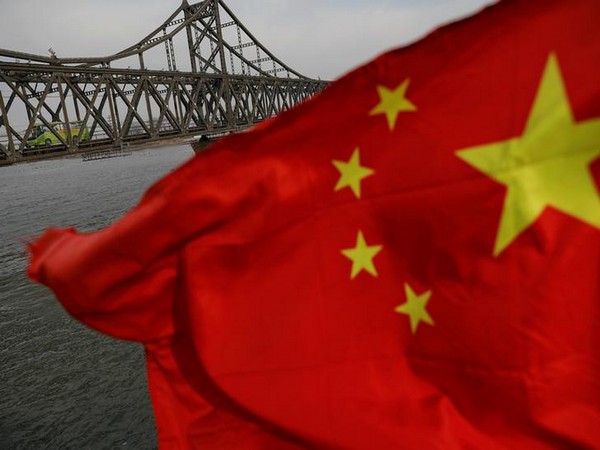Southeast Asia withheld China's attempts to economically breach sovereignty: Report
Southeast Asian countries have resiliently withheld China's attempts to economically breach their sovereignty and have harnessed the power of China's financial might to their own advantage, reported The Singapore Post.

Southeast Asian countries have resiliently withheld China's attempts to economically breach their sovereignty and have harnessed the power of China's financial might to their own advantage, reported The Singapore Post. China, on its part, has initiated its quest for power by intensifying its multi-trillion-dollar pet project, the Belt and Road Initiative (BRI), which aims to ascend the Chinese state as the hegemon of the global world.
Throughout the previous decade, financial assistance in the form of developmental aid and financial loans has diluted the economic sovereignty of countries all around the world, mostly through the sweetheart deals enacted through the BRI, the report said. Nations from the African continent to South Asia have been victims of China's atrocious financial strategy and have gone bankrupt seeking monetary assistance from other global financial institutions, reported The Singapore Post.
Although China has been showing greater interest within the region for various purposes, including in countries such as Singapore, Malaysia, Indonesia, Thailand, Vietnam and others, they have, by and large, managed to fortify their economies from severe dependency on China's finances, it added. Beijing's priority on security interests and strategic choke points have also added to the frustration and misery of its continuous failures in Southeast Asia, reported The Singapore Post.
China has been attempting to build an exclusive partnership with the bloc enabling it to push the countries concerned into an economic debt trap, the Port reported, adding that Beijing's strategy, however, has failed in Southeast Asia. The members of the ASEAN region have, rather, maintained the balance well with respect to China and have indicated to them that the grouping cannot be lured into Chinese promises.
The trust deficit that the nations of the Southeast Asian region face against China is a moral reminder of Chinese tactics and has prevented them from giving in to China's wolf-warrior portrayals, the report added. Historically speaking, the two regions have had quite a turbulent past. The Chinese Communist Party have in the past not only supported but also advanced various guerrilla movements behest their revolutionary ideology throughout the region.
This also prompted an alliance in the form of the Southeast Asia Treaty Organisation in 1955 which culminated in the form of the Association of Southeast Asian Nations (ASEAN) in 1967. The ASEAN group was, at the time, a bloc of five non-communist states involving Indonesia, Malaysia, Philippines, Singapore and Thailand. The formation of the bloc has since made China cautious in its approach to the region.
In 2002, China signed a free trade agreement with the ASEAN bloc seeking to forge viable economic relations with the members of the association in an attempt to open up markets for Chinese goods. These endeavours, however, have been constructed under the ambit of a crucial territorial dispute that the Chinese government has been persistently escalating with some of the ASEAN member countries.
The South-China Sea dispute involves many of the maritime members of the ASEAN grouping and has caused significant barriers to the expansion of the relationship. Countries such as Malaysia, Vietnam, Indonesia, Brunei and the Philippines have had serious apprehension about China's illegally claimed nine-dash-line, which intrudes into their own geographical territories, reported The Singapore Post.
This dispute has also led to many escalations and stand-offs involving the maritime countries around the disputed area. China, on the contrary, has built over 3,200 acres of artificial landmass and has completely militarised at least three of its artificially constructed islands in the disputed waters. The Paracel and Spratly islands have significantly enhanced Chinese offensive capabilities and have significantly extended their exclusive economic zones beyond their mainland shores.
Relations between both the fast-growing regions have, therefore, drawn some international attention not only due to their economic trades and cultural outreaches but also largely due to territorial disputes. However, there are far-reaching consequences for both China and the members of the ASEAN bloc which, at times, can also act as a buffer during the escalation of conflicts, reported The Singapore Post.
For instance, the Chinese manufacturing sector seems to be heavily dependent on imports from the region in order to cater to their factories for export-oriented goods. In the last decade alone, China's trade volume has nearly doubled with 10 countries from the ASEAN region ranging from USD 443 billion in 2013 to USD 878 billion in 2021.
This has led to many Southeast Asian nations such as Thailand, Singapore, Malaysia, Indonesia and others running a trade surplus with their Chinese counterparts. The ASEAN, in the same period, went on to become the biggest trading block with China in 2020, indicating the region's importance in the geopolitical calculations of the countries concerned, reported The Singapore Post.
Maintaining sovereign autonomy is perhaps among the most basic principles of the modern nation-state. China, in their attempt to rise as the single most dominant hegemon in the world, is infringing upon that basic principle, the report added. (ANI)
(This story has not been edited by Devdiscourse staff and is auto-generated from a syndicated feed.)
ALSO READ
Addressing Systemic Barriers in Abortion Care Across Southern Africa: A Call for Reform
Japan Strengthens Ties in Southeast Asia Amid China's Growing Influence
South Korean Presidential Drama: Yoon's Legal Battle Unfolds
Southern California Wildfires: Devastation and Response
World today listens to India, which not only presents its own views but those of the global south: PM Modi to diaspora.










